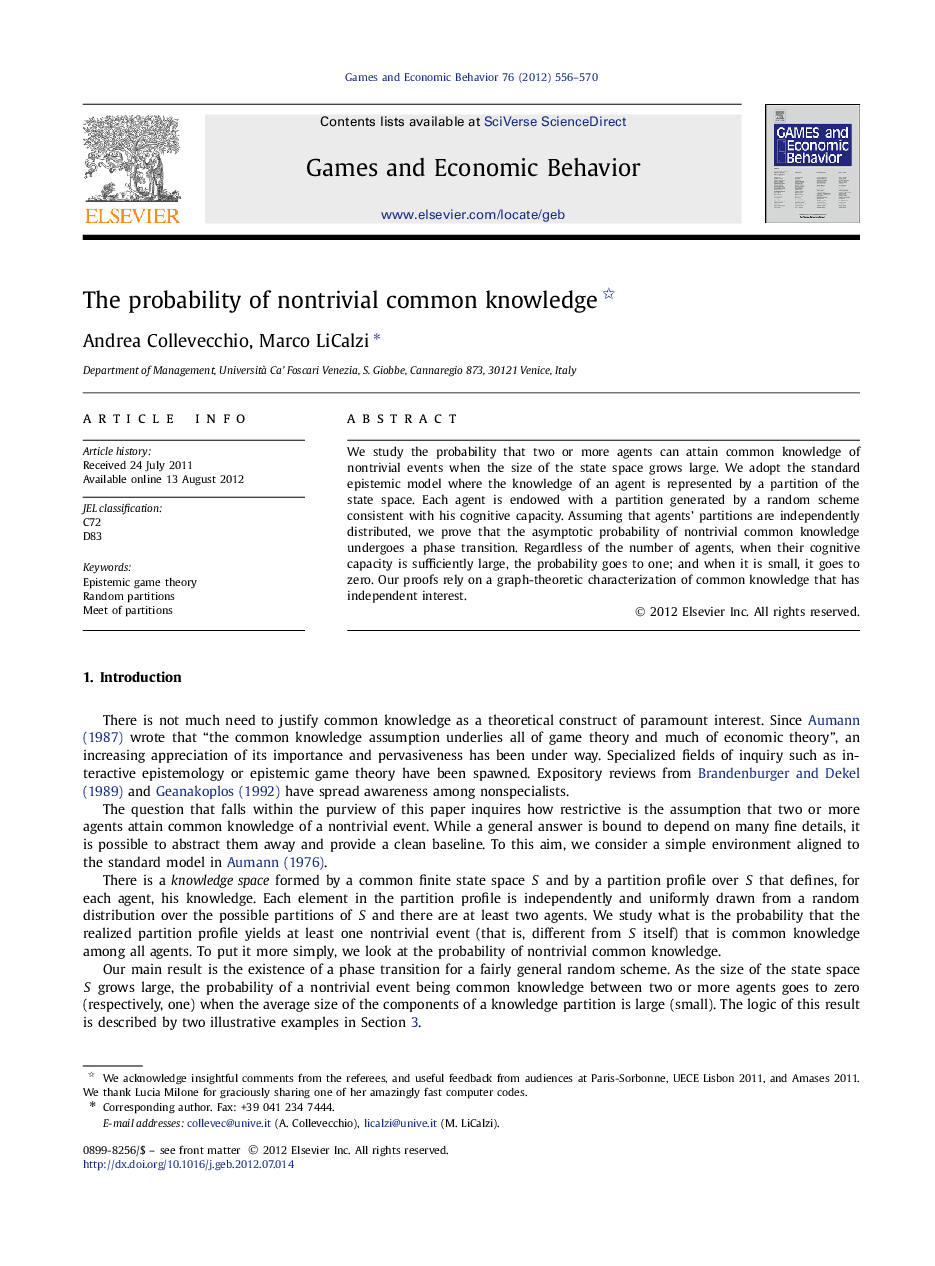| Article ID | Journal | Published Year | Pages | File Type |
|---|---|---|---|---|
| 5072047 | Games and Economic Behavior | 2012 | 15 Pages |
Abstract
⺠We study the probability that two or more agents attain nontrivial common knowledge. ⺠Each agent has a random knowledge partition consistent with his cognitive capacity. ⺠When the size of the state space grows, nontrivial common knowledge undergoes a phase transition. ⺠Our proofs rely on a novel graph-theoretic characterization of common knowledge.
Related Topics
Social Sciences and Humanities
Economics, Econometrics and Finance
Economics and Econometrics
Authors
Andrea Collevecchio, Marco LiCalzi,
